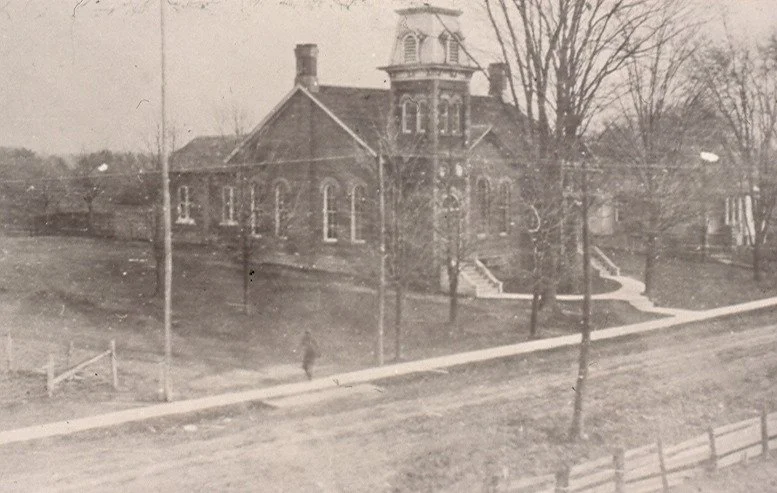Mike's Musings - My prescription for the Conservatives
/In my last Modern Mississauga column, I offered my unsolicited advice to the federal Liberals, NDP and Greens. Today, I want to devote some column inches and pixels to the Conservatives.
Now, when it comes to the Conservatives, I have to confess that I’m torn. I’ve been a conservative activist my entire adult life. As such, I’m disappointed that the Conservatives didn’t win and my first instinct is to blame the leader for losing. On the other hand, while I don’t know him well, I like Andrew Scheer as a person. He’s personable and I think he’s a man of integrity and character. A man with five kids, who clearly loves his wife, goes to church every Sunday and devotes his life to public service is a man that deserves respect. But nice guys don’t always win.
It’s also true that while the end result in seats is clearly disappointing, the fact is, the Conservative campaign grew their support by nearly 555,000 voters (5.6 million in 2015 to 6.1 million in 2019). This can’t be ignored, but that growth came in parts of the country that are already solidly conservative in their values and approach. It gained a tonne of votes in rural and western Canada, but lost them in the Greater Toronto Area. One can only conclude that the campaign focused on the core conservative base and did a great job of motivating and turning that vote out, but failed to grow that base. It failed to articulate a conservative message that was at all resonant with “swing” voters who do not have an ideological, conservative bent.
So, is this a failure of the leader, his advisors, the Party – or all of the above?
In my view, there’s enough blame to go around, but instead of trying to parse that blame, I’d rather focus on what the Conservative party needs to do going forward to win. In my opinion, there are six areas where Conservatives need to provide a strong “small c” conservative approach to the electorate:
1) Stop being afraid of big change when it comes to economic policy. Instead of boutique tax credits and using narrow policy ideas to micro-target voter blocs, recognize that Canada needs fundamental structural change to our fiscal structure and go for it. We have an aging population and already 40% of taxpayers don’t pay any income tax because they are children, students, the retired or unemployed. In a few years, there will be more non-taxpayers than tax-payers (at least, with respect to income tax). That’s not politics; that’s math. To deal with this new reality, we need a fundamental re-think of our tax and wealth distribution system. I’d rather do this work through a conservative lens than to let the “left” do it for us (or to us!).
2) Re-orient the conversation about “family values”. In the Conservative party, family values policy is a conversation dominated by the “social conservative” wing and their view of “family” is stuck somewhere in the ‘50’s. Times have changed, family structures have changed, but what hasn’t changed is the fundamental truth that strong family relationships are critical to the health of society. Kids who grow up with loving parents and networks of support provided by aunts and uncles, cousins and grandparents grow up to be strong adults. It doesn’t matter one whit who the aunts, uncles, fathers, mothers and grandmothers are or whether the couples are in same-sex or heterosexual relationships.
So, in that context, conservatives must embrace “family” policy that (a) recognizes that families come in all shapes and sizes and (b) all those families need to be supported and encouraged by government policy. Measures begun under PM Harper like income splitting and the monthly child benefit is what I’m talking about here. Conservatives can take this further and remove all artificial disincentives to family formation. These are pro-family policies and the Conservative party needs to show that this is what we’re talking about when it comes to “family values”. I think most so called “social conservative” activists would, in the end, agree with this approach as a better way to advance their agenda than their current path which simply leads to Conservative electoral losses.
3) Show an uncompromising support for democracy, equality rights and religious freedoms. This means Conservatives should come out forcefully against stuff like Quebec’s Bill 21 and stand in solidarity with pro-democracy activists in Hong Kong, Iraq or anywhere else in the world. Canada is a multi-cultural society and voters from these cultures are looking to Canada for leadership domestically and on the world stage. When these voters see Conservatives get wishy-washy on these matters, or on matters like LBGTQ equality rights, the voters default to the stereotype that Conservatives harbor racist or intolerant views. Conservatives will only win when the visible minority communities around the GTA, or greater Vancouver or suburban Ottawa, can believe with absolute confidence that a Conservative government will always fight for their rights, interests and their values, without compromise.
4) Talk about law and order again – but modernize our approach. The traditional Conservative approach to law and order has revolved around a “lock ‘em up and throw away the key” mentality. Modern reality is that policing and public safety is as much about dealing appropriately with mental health and addictions as anything else. Law enforcement and our justice system is straining under the weight of having to deal with these new realities. I have long advocated for a “fiscal conservative” approach to law and order which realizes that a crime prevented or a criminal diverted from the criminal justice system is a heckuva lot cheaper for the treasury and a mile better for society than arresting a criminal and throwing him in jail indefinitely. In the modern context, this means devoting a lot more resources to mental health and addictions treatment to divert people away from crime.
That said … I have no sympathy for criminals who do not have mental health or addictions as a reason for their behaviour. Violent offenses, gun crimes, violence on children … these deserve the full weight of the law without compromise.
This approach – which I’ll expand on in a future column – should stand in stark contrast with the approach of the Liberals who have starved police and the justice system and, instead, focused on symbolic (and largely pointless) efforts such as regulations on guns.
5) On the environment, Conservatives have a good and positive story to tell (honest we do!), but we seem afraid to tell it. I’m frustrated that the current frame for the environmental debate in Canada seems to begin and end with fealty to a carbon tax. The reality, in my view, is that there are a range of policy options available to combat global climate change and mitigate its effects, but Conservatives have been far too shy talking about them. In the middle of the most recent campaign, Andrew Scheer released what I thought was actually a pretty decent plan – www.arealplan.ca – but he hardly talked about it and they let the media narrative dominate that Conservatives had no plan. This plan should have been released last summer and promoted heavily.
I think Conservatives need to present a message that emphasizes the positive (yes, positive!) opportunity presented by global climate change. The fact is, the world needs Canada’s expertise in clean energy production – in hydroelectric power, wind power, nuclear power and even “cleaner” oil and gas extraction. This opportunity for economic development here at home, while making serious and substantial progress toward reducing global emissions, is at the core of the Conservative approach and stands in stark contrast with the Liberal approach which seems more interested in virtue signaling and moral leadership at the UN than in actual results … in my humble opinion, at least.
Canadians are rightly worried that global climate change presents an existential threat to their future survival. If they can be doubly assured that there is a credible plan to deal with the threat AND grow some prosperity at the same time, I think that’s a much more palatable message than the story of sacrifice being peddled by the Green/NDP/Liberal left.
If Andrew Scheer had said that 20,000 high-value engineering jobs would be created in Mississauga building the next generation of emission-free CANDU nuclear power plants, instead of talking about reducing the cost of my tank of gas by 10 cents, how many more voters around here would have looked seriously at the Conservatives? (Bet you didn’t know that we already have nearly 2,000 nuclear scientists, engineers and technicians in Mississauga working at CANDU Nuclear in Sheridan Park.)
6) Focus on growth, not cuts. The Liberals have successfully framed Conservatives as the party of austerity and it is true that Conservatives are more inclined to find ways to cut costs than to grow budgets, but the reality is that when most voters – particularly swing voters – hear the word “efficiency”, they think of cuts in classroom and hospitals. This is proving fatal to the rest of the Conservative message.
To win, Conservatives should not abandon our focus on being good stewards of tax dollars, but I would advocate for a political platform that emphasizes how Conservatives will grow the economy – through innovation, entrepreneurship, deregulation – so that health, education, transportation infrastructure, etc. will have MORE resources in the future, not less.
So that’s my prescription – well, part of it at least – for future Conservative party success. Be bold; be conservative (and yes, I get the oxymoron of those two things) … but most importantly, figure out a message that will resonate with more voters. If we don’t, we’ll be relegated to writing columns about what we should do, rather than writing policy and legislation for government. I’d rather do the latter.
Mike Ras is a keen observer of public policy, politics and media. For his day job, he’s director of government relations with a prominent Canadian financial institution. A resident of Mississauga, part-time “professor” in the Government Relations program at Seneca College and an active volunteer with a number of local charities.
Connect with him on Twitter here.














